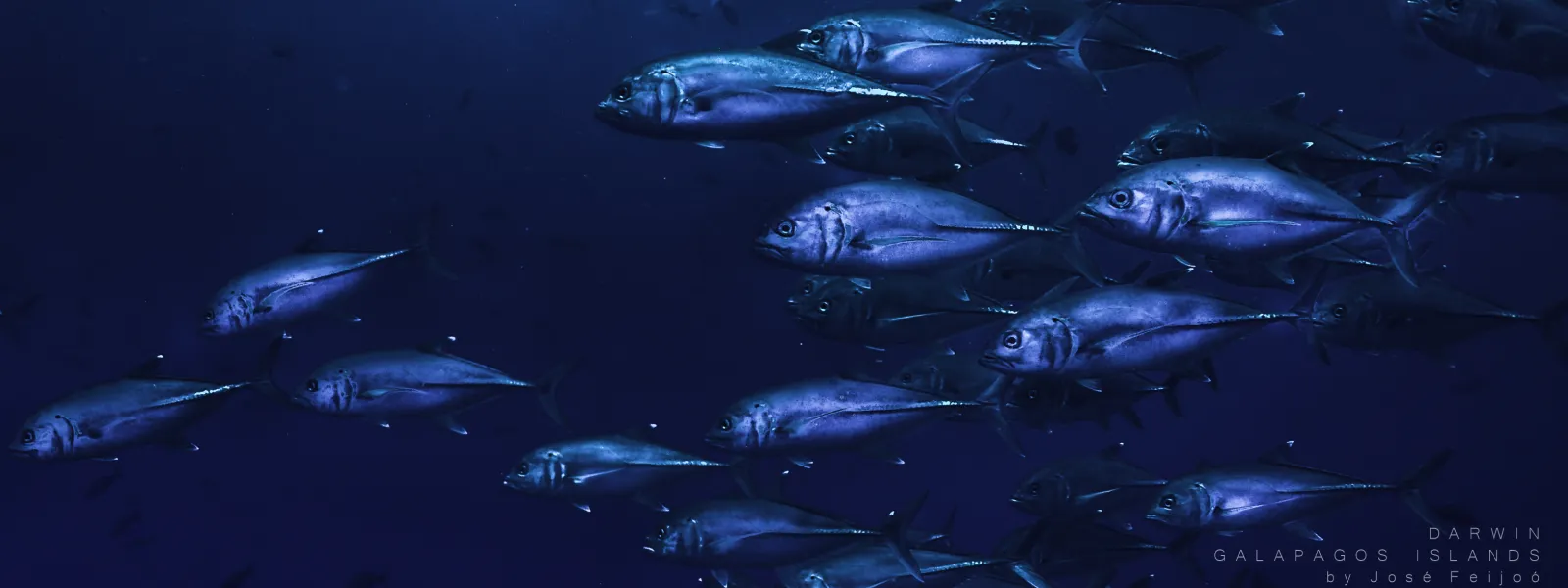
Publications
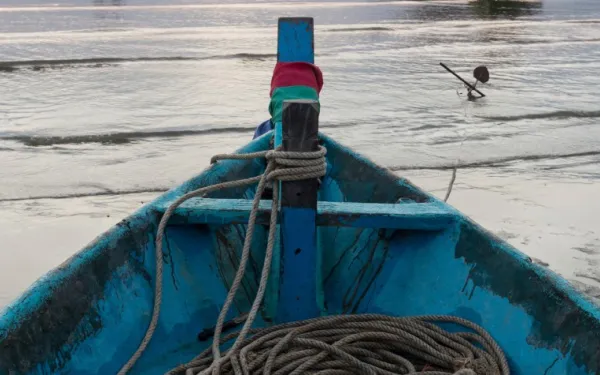
Tools for sustainable fisheries and coastal management
Our oceans are collapsing in every sense of the word. In the last hundred years, we have overfished and polluted most every treasured and productive marine and coastal ecosystem in reach. Climate change is now causing its own grave set of marine problems. Yet there is hope: success stories that suggest we can turn things around if we act now. AIDA is committed to making sustainable fisheries a reality and to helping restore and protect coastal waters throughout the Americas. To achieve this, we must help governments strengthen and enforce laws and regulations protecting marine and coastal biodiversity. AIDA’s new publication, “Tools for Sustainable Fisheries and Coastal Management” provides a road-map to tackle this challenging work. This Spanish-language guide explains the many problems plaguing our seas and provides specific legal, scientific and economic tools to more sustainably manage our marine and coastal resources. Government officials and legislators can use this information to develop, improve, and more effectively enforce national marine biodiversity laws and regulations. Read the Executive Summary (in Spanish) Chapter 1. The Oceans and Our Fisheries: the Need for Sustainable Marine Management Chapter 1 analyzes the current condition of the oceans, discussing those factors responsible for the decline in fisheries. Among those most responsible for the decline are overfishing, lack of regulation, and an abuse of technology. The chapter continues with a review of international legal instruments in force that establish obligations for governments to protect and conserve the seas and their biodiversity. The review concludes that current controls and preventative measures have not been sufficient to reduce harmful impacts on marine resources. Some fish populations are deteriorating so rapidly that new collapses in commercial fisheries may occur in several regions of the world. For this reason, it is up to decision-makers, consumers and the fishing industry to implement more effective control measures (presented in the following chapters) to prevent the same grave situations, provided as examples here. Chapter 2. Planning for Sustainable Fisheries This chapter addresses the issue of fishing regulations, which in most countries comprise an important tool to control the activity but are not the only answer to declining fish stocks. Once the term of fisheries management is defined, the discussion shifts to measures for fishing management and classification, from techniques to controls on inputs or efforts and products or catches. The chapter explores management plans that make use of only one of these measures. It also touches on the content of these plans and their design procedures and some of their outstanding aspects. Also mentioned in the chapter is the need to have regularly updated records of granted fishing permits as a requisite for sustainable management. It concludes that the plight of fish stocks should compel countries to properly organize fishing activities to ensure the recovery and availability of fish for future generations. Chapter 3. Limiting the Overall Fishing Effort Chapter 3 describes and analyzes the current regulatory instruments used to limit the overall fishing effort, including programs to reduce fishing boat licenses, decommission boats, retrain fishermen, and reduce the time nets are cast. The chapter also suggests measures that should be considered in order for these programs to truly accomplish their objectives. Additionally, the chapter provides examples of specific programs to limit the overall fishing effort that were designed and implemented in various countries and can serve as models for parties interested in designing similar programs. Chapter 4. Controlling Catch Levels This chapter looks at the measures implemented to exercise control over fish catches. Among them are the so-called traditional methods such as fishing permits and fees, setting quotas on catches, establishing fishing seasons for certain species (closed seasons) and the minimum size of the specimens of commercial species as well as those under special protection or management. These tools have been applied in various countries to control catches, and the chapter includes examples of where this has happened to provide examples of the many options available. Also described in this chapter are "alternative" methods that countries can implement to control catches and ensure sustainable fishing activities. Of these options, some deserve particular attention. One involves controlling incidental catch, or bycatch, given its importance for conserving marine species. Another involves setting individual fishing quotas (IFQs), the most modern method to control catches. Chapter 5. Controlling Bycatch This chapter examines the phenomenon of bycatch, responsible for much of the deterioration of the world's marine biodiversity. Given that most modern fishing methods do not discriminate between targeted and untargeted species, many resources are lost when captured incidentally as bycatch, including fish, marine mammals and birds, among others. The chapter begins by describing the different types of fishing and the risk each poses to bycatch. Subsequently, the chapter looks at the different existing security measures, including examples of how different countries have faced the problem. It then explains that it is best to opt for a combination of measures that will result in the best possible scenario. Chapter 6. Marine Coastal Planning This chapter examines the tools for coastal planning and management as a method for effectively protecting coastal zones and seas. Coastal zones are particularly vulnerable to jurisdiction conflicts over the use and allocation of coastal marine resources due to the diversity of activities and ecosystems that exist in them. The chapter also looks at integrated coastal management (ICM) as a continuous and dynamic process between community, science and the state to implement integrated plans for the protection and development of coastal resources. Examples of ICMs are explored in Peru, Belize, Mexico, Colombia, Costa Rica and the European Union. The issue is complemented with ecosystem-based management and examples of the governance of spaces and marine resources in Antarctica and the high sea. The chapter concludes that to effectively and sustainably manage our seas we must integrate the basics of biophysical, social, economic and planning with a long-term vision. Chapter 7. Forms of Marine Protection This chapter explores marine protected areas (MPAs) and their benefits as a conservation tool. It also mentions the MPA categories in relation to protected ecosystems and the classifications of international organizations like UNESCO and the International Union for Conservation of Nature. It then lists the problems and solutions related to the delimitation of the size of the MPAs as well as those related to the actions of control, inspection and surveillance, and to the current and future financing of these areas. As case studies, the treatment of the MPAs in law and public policy are examined in Mexico, Costa Rica and Brazil. The chapter includes measures for the protection of offshore resources by transnational MPAs and ends by addressing the difference between no-fishing zones and fish stocks. Chapter 8. Monitoring, Control and Surveillance of Fishing Activities This chapter explores the monitoring, control and surveillance techniques in different countries. It shows how they are necessary to verify compliance with standards and determine the effectiveness in doing so. Monitoring is important to collect fishing information for making decisions. The chapter also addresses the issue of sanctions. It’s important to have the administrative and criminal legislation necessary to sanction and prevent behaviors that threaten the sustainability of fishing and marine biodiversity, the text reads. The chapter emphasizes the need for coordinating efforts between the different systems of government and/or countries to achieve greater compliance with standards. Chapter 9. Economic Tools and Incentives for Responsible Fishing In this chapter, the main economic tools for responsible fishing are analyzed, which when efficiently designed and applied can promote the protection, restoration, preservation and sustainable use of marine resources. As it is immersed in market dynamics, fishing is especially susceptible to the application of economic instruments and incentives. The chapter discusses three categories of economic instruments: market (fish certification and eco-labeling), fiscal (green taxes, duties and subsidies) and financial (creating funds and loans). For each category, the concept of the tool and its practical application are explained through examples. The last section of the chapter examines other economic incentives such as penalties and fines that seek to promote positive behaviors in the population. The chapter wraps up with a series of recommendations for the effective use of economic tools. These include studying the economic and social reality for setting positive environmental goals and for applying these instruments together with other policy and monitoring tools. Chapter 10. Aquaculture y Mariculture In Chapter 10, AIDA explains the impacts and health risks associated with aquaculture in the Americas and discusses less harmful, alternative approaches. The chapter includes examples of both successful and unsuccessful projects. We provide detailed information about the damaging impacts of aquaculture on the marine environment, wild species, local economies, and public health. We also discuss the basic requirements needed to reduce harmful impacts from aquaculture activities such as: adequate zoning of projects; regulation of cultivated species; appropriate feeding and waste-elimination techniques; and effective government monitoring and enforcement, among others. Additionally, we explain novel techniques such as polyculture, land cultivation, and ecological certification, which are being researched as possible alternatives with less human and environmental impacts. Chapter 11. Social and Economic Aspects of Responsible Fishing This chapter focuses on the socio-environmental aspects of the fishing industry, which is crucial for job creation, food security and the potential for overcoming poverty in a large portion of the world population. The chapter begins by analyzing the current state of the sector, and it raises warnings about the poverty and harsh labor conditions of those working in fishing. The chapter calls for changes in fishing policies to promote real change to the grim conditions in the industry. Different alternatives for action are discussed, and each is illustrated by real experiences from around the world to show their success or failure and the lessons that can be learned from them. Executive SummarY (SPANISH) Read the Full Report (in Spanish) Acknowledgements We thank everyone who in one form or another contibuted their knowledge and expertise to this publication. We especially thank: Rolando Castro, member of the AIDA Board of Directors; Sofía Cortina, Isabel Calle, Samantha Namnum, Gladys Martínez, Sandra Moguel, Florencia Ortúzar, María Giménez, Mónica Ribadeneira, John Kaltenstein and Phil Eager, Haydée Rodríguez, Víctor Quintanilla, Clarissa Castillo, Diego Alvarez, lawyers with expertise on the subject of marine conservation; and all interns who have helped us make this possible.
Read more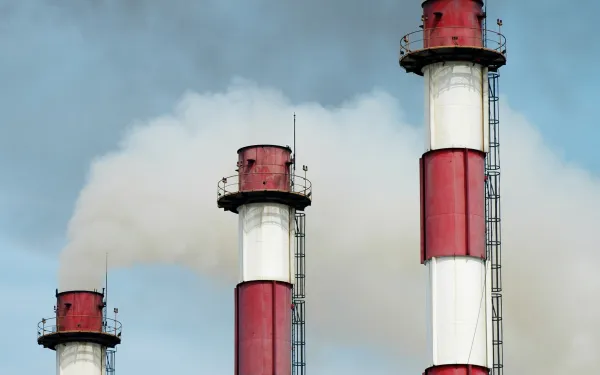
Controlling Short-Lived Climate Pollutants: An opportunity to better air quality and mitigate climate change
The report review the institutional, legislative, and regulatory frameworks, as well as existing government programs related to the control and monitoring of SLCPs, in three strategic countries of Latin America: Brazil, Chile and Mexico. Short-lived climate pollutants (SLCPs) are atmospheric agents that contribute to climate change and degrade air quality. They are so-named because of their relatively short lifespan in the atmosphere, ranging from a few days to a few decades. SLCPs include: black carbon, methane, tropospheric ozone, and hydrofluorocarbons. This report identifies areas of opportunity and potential gaps in which each of the three countries can make progress in mitigating these pollutants. Addressing these opportunities will benefit the fight against climate change, as well as the protection of ecosystems and human health. The report was made by the Interamerican Association for Environmental Defense (AIDA), in collaboration with the Instituto de Energia e Meio Ambiente (IEMA), and with the participation of the Centro de Derechos Humanos y Ambiente (CEDHA) of Argentina, and the Centro Mexicano de Derecho Ambiental (CEMDA), as well as the Red Latinoamericana de Contaminantes Climáticos de Corta Vida (RedRacc). Special thanks to Romina Picolotti of the Centro de Derechos Humanos y Ambiente (CEDHA); Laura Gallardo and Nicolás Huneeus of the Centro del Clima y Resiliencia de la Universidad de Chile; Gianni López of the Centro Mario Molina Chile; Gabriela Niño and Giselle García of the Centro Mexicano de Derecho Ambiental (CEMDA); Erika Rosenthal of Earthjustice; Sandra Guzmán of the Grupo de Financiamiento Climático para América Latina y el Caribe (GFLAC); Stela Herschmann of the Institute for Governance & Sustainable Development (IGSD); Evangelina Vormitagg of the Instituto Saúde e Sustentabilidade de Brasil; Marcelo Mena of the Ministerio de Medio Ambiente of Chile; Flavia Liberona and Javiera Valencia of the Fundación TERRAM of Chile; Luis Cifuentes of the Universidad Católica de Chile; Maria de Fatima Andrade and Paulo Hilário Nascimento Saldiva of the Universidad de São Paulo; and Sebastián Tolvett of the Universidad Técnico Metropolitana de Chile, for their comments and support. Read and download the report (in Spanish) Read and download the executive summart (available in English)
Read more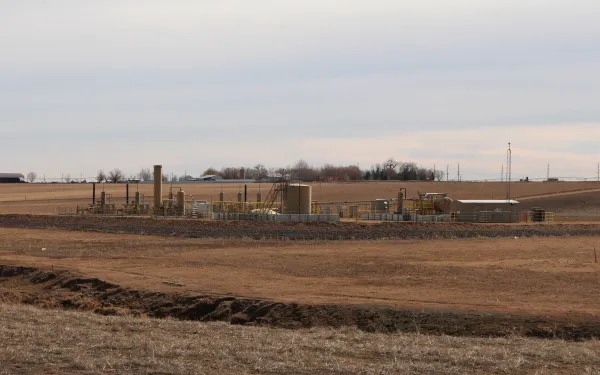
The Precautionary Principle: A legal tool against the impacts of fracking
This report analyzes the viability of using the precautionary principle to prevent, avoid or stop fracking operations in Latin America. These measures can result in prohibitions or moratoriums, as has occurred in various states, provinces and cities across America and Europe. Fracking is a technique that enables the exploration of historically inaccessible reservoirs of natural gas or petroleum. Governments and businesses across the world have pushed for the exploration of these reservoirs due to declining global reserves of conventional hydrocarbons, thanks to 150 years of overexploitation. The exploitation of unconventional hydrocarbons is technically more difficult, has a higher economic cost, and implies greater risks to the environment and public health.Promoting fracking to extract unconventional hydrocarbons is a bad decision on climatic, political, social and environmental levels. It deepens our dependence on fossil fuels and wastes energy and resources that should be directed at developing renewable energies.That's why we felt it important to examine the viability of applying the precautionary principle as a legal tool to avoid or slow down the risks and damages caused by fracking, particularly in countries that have begun or are planning to begin fracking in coming years. Read and download the report (in Spanish)
Read more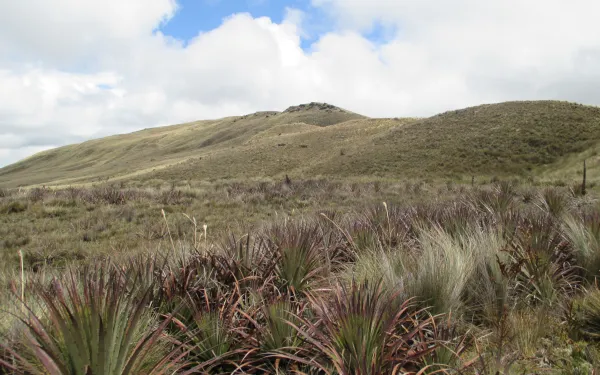
Facts on Financing the Climate Fight
The impacts of climate change are already being felt by many millions of people and communities around the world – but the burden weighs most heavily on the poor and marginalised in developing countries. That’s why 195 countries came together to create the Green Climate Fund (GCF) under the United Nations Framework Convention on Climate Change (UNFCCC). The GCF is expected to play a central role in financing efforts to combat climate change » (mitigation) and to help developing countries cope with its effects (adaptation). LEARN MORE ABOUT IT:
Read more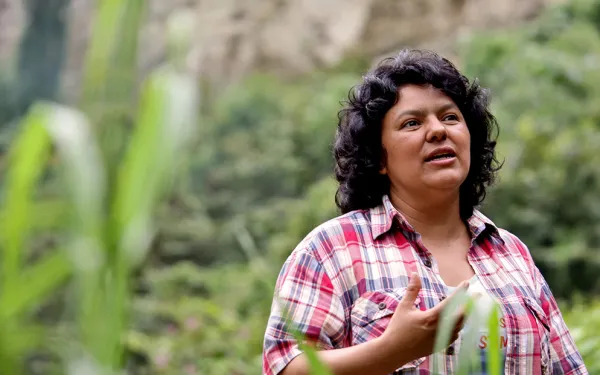
Public letter to President of Honduras on the killing of Berta Cáceres
Dear President Juan Orlando Hernández, We, a group of 50+ international organisations, write to express our shock and concern over the recent killing of Berta Cáceres, environmental activist and head of the indigenous rights group COPINH. As you will know, Mrs Cáceres was shot dead by gunmen in the late hours of 2 March 2016. Over the years she had received multiple death threats and attempted kidnappings because of her work defending indigenous Lenca land against the Agua Zarca dam project in Río Blanco. These threats had escalated in recent weeks since construction of the dam had restarted. We demand an independent international investigation into the circumstances around Mrs Cáceres’ death, and guaranteed protection for her family and colleagues. Mrs Cáceres was granted emergency protection measures by the Inter-American Commission on Human Rights because of her acute vulnerability, but she claimed the Honduran state did not fully implement them. We also demand urgent action to protect Gustavo Castro Soto, a Mexican activist who witnessed her assassination, and to ensure his safe passage back to Mexico. Mrs Cáceres’ case is the most high-profile killing within a growing trend in the murder, violence and intimidation of people defending their indigenous land rights in Honduras. Honduras is the world’s most dangerous country per capita to be an environmental or land defender, with at least 109 people killed between 2010 and 2015. Mrs Cáceres’ case has not escaped international attention. In a statement issued in response to her death U.S. Senator Patrick Leahy called on you to find and punish those responsible for “this despicable crime.” Last year, US Senator Barbara Boxer wrote a letter to US Secretary of State John Kerry urging for better protection of environmental defenders in Honduras. This was in direct response to Mrs Cáceres winning the 2015 Goldman Environment Prize – a prestigious award recognizing grassroots environmental activists from around the world. News of her death has generated substantial international media attention. The 50+ international organisations listed below call on the Honduran state to ensure indigenous peoples’ right to their land is respected and that they are able to carry out their legitimate work without fear for their safety.
Read more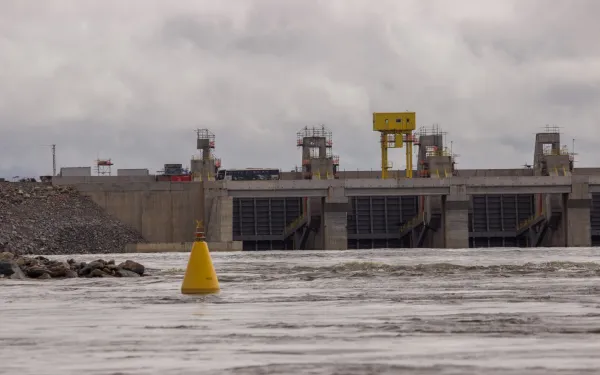
Ten Reasons Why Climate Initiatives Should Not Include Large Hydropower Projects
A Civil Society[i] Manifesto for the Support of Real Climate Solutions Large hydropower projects are often propagated as a “clean and green” source of electricity by international financial institutions, national governments and other actors. They greatly benefit from instruments meant to address climate change, including carbon credits under the Clean Development Mechanism (CDM), credits from the World Bank’s Climate Investment Funds, and special financial terms from export credit agencies and green bonds. The dam industry advocates for large hydropower projects to be funded by the Green Climate Fund, and many governments boost them as a response to climate change through national initiatives. For example, at least twelve governments with major hydropower sectors have included an expansion of hydropower generation in their reports on Intended Nationally Determined Contributions (INDCs). Support from climate initiatives is one of the reasons why more than 3,700 hydropower dams are currently under construction and in the pipeline. Yet large hydropower projects are a false solution to climate change. They should be kept out from national and international climate initiatives for the following reasons: Particularly in tropical regions, hydropower reservoirs emit significant amounts of greenhouse gases. According to a peer-reviewed study, methane from reservoirs accounts for more than 4% of all human-caused climate change – comparable to the climate impact of the aviation sector. In some cases, hydropower projects are producing higher emissions than coal-fired power plants generating the same amount of electricity. Rivers take about 200 million tons of carbon out of the atmosphere every year. In addition, the silt that rivers like the Amazon, Congo, Ganges and Mekong carry to the sea feeds plankton and absorbs large amounts of carbon. Hydropower projects and other dams disrupt the transport of silt and nutrients and impair the role of rivers to act as global carbon sinks. Hydropower dams make water and energy systems more vulnerable to climate change. Unprecedented floods are threatening the safety of dams and alone in the US have caused more than 100 dams to fail since 2010. Dam building has exacerbated flood disasters in fragile mountain areas such as Uttarakhand/India. At the same time more extreme droughts increase the economic risks of hydropower, and have greatly affected countries from Africa to Brazil that depend on hydropower dams for most of their electricity. In contrast to most wind, solar and micro-hydropower projects, dams cause severe and often irreversible damage to critical ecosystems. Due to dam building and other factors, freshwater ecosystems have on average lost 76% of their populations since 1970 – more than marine and land-based ecosystems. Building more dams to protect ecosystems from climate change means sacrificing the planet’s arteries to protect her lungs. Large hydropower projects have serious impacts on local communities and often violate the rights of indigenous peoples to their lands, territories, resources, governance, cultural integrity and free, prior informed consent. Dams have displaced at least 40-80 million people and have negatively affected an estimated 472 million people living downstream. The resistance of dam-affected communities has often been met with egregious human rights violations. Large hydropower projects are not always an effective tool to expand energy access for poor people. In contrast to wind, solar and micro-hydropower, large hydropower dams depend on central electric grids, which are not a cost-effective tool to reach rural populations particularly in Sub-Saharan Africa and the Himalayas. Large hydropower projects are often built to meet the demands of mining and industrial projects even if they are justified by the needs of the poor. Even if they were a good solution in other ways, large hydropower projects would be a costly and time-consuming way to address the climate crisis. On average large dams experience cost overruns of 96% and time overruns of 44%. In comparison, wind and solar projects can be built more quickly and experience average cost overruns of less than 10%. Unlike wind and solar power, hydropower is no longer an innovative technology, and has not seen major technical breakthroughs in several decades. Unlike with solar power, climate funding for large hydropower projects will not bring about further economies of scale, and does not encourage a transfer of new technologies to Southern countries. Wind and solar power have become readily available and financially competitive, and have overtaken large hydropower in the addition of new capacity. As grids become smarter and the cost of battery storage drops, new hydropower projects are no longer needed to balance intermittent sources of renewable energy. Hydropower projects currently make up 26% of all projects registered with the CDM, and absorb significant support from other climate initiatives. Climate finance for large hydropower projects crowds out support for real solutions such as wind, solar and micro hydropower, and creates the illusion of real climate action. Including large hydropower in climate initiatives falsely appears to obliterate the need for additional real climate solutions. For these reasons, the undersigned organizations and individuals call on governments, financiers and other institutions to keep large hydropower projects out of their initiatives to address climate change. All climate and energy solutions need to respect the rights and livelihoods of local communities. [i] Amazon Watch, Asia Indigenous Peoples Pact, Asociación Interamericana para la Defensa del Ambiente, Bianca Jagger Human Rights Foundation, Carbon Market Watch, International Rivers, Jeunes Volontaires pour l'Environnement International, Oxfam International, South Asia Network on Dams, Rivers and People; Urgewald, REDLAR and Movimiento Ríos Vivos.
Read more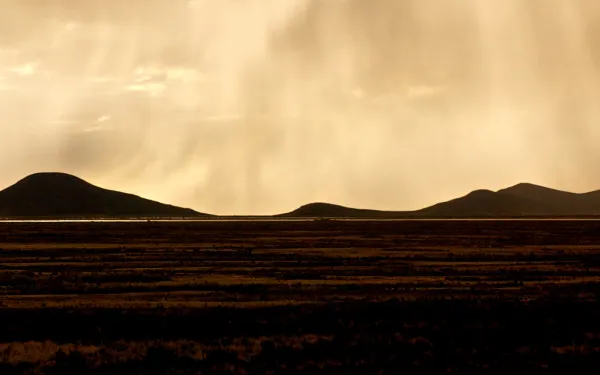
Letter to Pope Francis on the Delicate Situation of NGOs in Bolivia
Respectfully we turn to Your Holiness, on the occasion of your upcoming visit to Bolivia, as organizations that protect the environment and human rights in the Americas. We wish to share with Your Holiness our growing concern about the severe limitations imposed upon civil society organizations (CSOs) by the Bolivian government, particularly with respect to those who defend human rights and those of Mother Earth. We celebrate the historic effort to protect our Common Home through the publication of your Encyclical letter, Laudato Si’. It is our hope your text drives profound change in the politics, practices and beliefs of our governments, corporations, and civil society, and inspires every person to create a more just and sustainable world. In your Encyclical letter, Your Holiness has highlighted the substantial contributions of our planet’s CSOs in putting environmental issues on the public agenda. We are deeply grateful for this recognition and we hope that Bolivian CSOs can continue playing their essential role in the promotion of and care for Mother Earth. This requires them to be able to fully exercise their work without threats from the government, even in situations in which they do not agree. As Your Holiness understands, Bolivia has made essential contributions to the national and international recognition of the rights of Mother Earth. In 2009, the Bolivian people approved by an absolute majority their new Constitution, which recognized the right to a healthy and balanced environment for all people; consolidated the environment as a subject of rights; and upheld the rights of future generations to the same. President Evo Morales has also internationally promoted the rights of Mother Earth, the rights of indigenous peoples, and the international recognition of the human right to water. In 2010, President Morales stated, “Now it is more important to defend the rights of Mother Earth than to defend human rights, because in defending the rights of Mother Earth, we defend human rights.”[1] Bolivian civil society organizations, together with indigenous and peasant organizations, played a crucial role in solidifying this new constitutional framework. However, since 2011 their situation and relationship with the government has deteriorated, especially after the government’s decision to construct a highway through a National Park and Indigenous Territory (TIPNIS). This is because most of the indigenous communities of that territory, and many civil society organizations working to defend the environment and human rights, opposed the project, considering it a violation of their rights that would cause irreversible damage to the natural habitat. Since then, the government has implemented policies and actions to weaken and limit the work of the CSOs. In 2013, the government of Evo Morales passed two laws (Act 351 and Supreme Decree 1597) that restrict and condition the functioning of CSOs to their compliance with sectoral policies of the government, that is to say, to the discretion of government actors. For example, the government can revoke the legal status of a CSO when it considers that the organization is not complying with sectoral policies of the government.[2] The Ombudsman of Bolivia submitted a claim of unconstitutionality against those laws in 2013, the outcome of which has not yet been resolved. These laws have scared the country’s CSOs away from their work for fear of losing their legal recognition. Many have been silenced to stay in line; others have ceased operations, or have converted to other legal status to prevent harassment from the government. Both the United Nations Human Rights Council[3] and the UN Special Rapporteur on the Rights to Freedom of Peaceful Assembly and of Association have expressed worry about Act 351 and its regulatory decree. Maina Kiai, UN Special Rapporteur, has stated that such laws “restrict the right of association in accordance with laws, standards, and international principles.”[4] The government has not yet incorporated United Nations recommendations to modify those rules. On May 20, the government approved a law (Supreme Decree 2366) that authorizes the exploration of hydrocarbons in all of the country’s national protected areas. In June, President Morales threatened CSOs, particularly those that promote the protection of the environment, stating: “… I want to say to you: NGOs, foundations that impede the exploration of natural resources, will leave Bolivia…”[5] Your Holiness, as you may appreciate, the situation of CSOs, or any person or institution intending to protect the environment in Bolivia, is very delicate. We therefore respectfully request that you, in your upcoming visit to the country, may use your good offices before President Evo Morales to request that his government stop pressuring CSOs, and assume a public commitment to respect, protect, and guarantee their work in recognition of the freedom of association, freedom of expression, and political and institutional pluralism essential for the sustainability of our democracies. We are incredibly grateful for your attention, and we send our fraternal greetings in the hope that your visit and intervention can contribute to improving the protection of our Common Home in Bolivia. We’d like to take this opportunity to express our highest consideration and great esteem. Fundación Centro de Estudios Ecológicos de la República Argentina (Argentina) Abogadas y Abogados para la Justicia y los Derechos Humanos, A. C. (México) Unidad de Protección a Defensoras y Defensores de Derechos Humanos (Guatemala) Medio Ambiente y Sociedad A.C. (México) Frente Ciudadano en Defensa del Agua y la Vida en B.C.S. (México) COMCAUSA AC (México) Acción Ecológica (Chile) Coordinadora Nacional de Derechos Humanos (Perú) Comisión de Justicia Social de la Diócesis de Chimbote (Perú) Instituto Peruano de Educación en Derechos Humanos y la Paz (Perú) Ambiente y Sociedad (Colombia) Asociación Amigos de los Parques Nacionales de Argentina (Argentina) Centro de Estudios Mineros Colombia Punto Medio (Colombia) Instituto Runa de Desarrollo y Estudios sobre Género (Perú) Centro de Estudios Jurídicos e Investigación Social (Bolivia) Fundación Ambiente y Recursos Naturales (Argentina) Liga de Defensa del Medio Ambiente (Bolivia) Asociación Ecologista Río Mocoretá (Argentina) Asociación Eco Raíces (Argentina) Fundación Myrna Mack (Guatemala) Paz y Esperanza (Perú) Foro del Buen Ayre (Argentina) Asociación Ambientalista Ecolapaz (Argentina) Asociación Ambientalista del Sur (Argentina) Asociación Ambientalista Mayu Sumaj (Argentina) Asociación Argentina de Abogados Ambientalistas (Argentina) Asociación Civil de Ecología Social (Argentina) Asociación Civil Red Ambiental (Argentina) Asociación Civil Tierra XXI (Argentina) Asociación de Protección al Ambiente Serrano - Calamuchita (Argentina) Asociación Ecologista PIUKE (Argentina) Asociación Lihue (Argentina) Asociación Vecinal Moronense (Argentina) Bios Argentina (Argentina) Centro Ambiental Argentino – Cambiar (Argentina) Centro Andino de Desarrollo e Investigación Ambiental (Argentina) Centro Argentino de Meteorólogos (Argentina) Centro de Protección a la Naturaleza (Argentina) Comisión Interdisciplinaria de Medio Ambiente (Argentina) Comisión Ecológica Ituzaingó (Argentina) Continental Nea (Argentina) Federación Amigos de la Tierra Argentina (Argentina) Foro de los Ríos (Argentina) Fundación Ambiente Ecológico (Argentina) Fundación Arandu (Argentina) Fundación Argentina de Energías Alternativas y Renovables (Argentina) Fundación Argentina de Etoecología (Argentina) Fundación Cullunche para la Conservación del Ambiente, la Flora y la Fauna (Argentina) Fundación Inti Cuyum (Argentina) Fundación Norte Ecológico (Argentina) Fundación Orden Ecológica (Argentina) Fundación Pacha Mama para el Medio Ambiente y Desarrollo (Argentina) Fundación para el Desarrollo Sustentable de Eco Regiones (Argentina) Fundación Pasos (Argentina) Fundación Península Raulí (Argentina) Fundación Proyectos Ambientales (Argentina) Fundación Red Informática Ecologista (Argentina) Grupo Ambiental para el Desarrollo (Argentina) Grupo Ecológico Bolívar (Argentina) Greenpeace Argentina (Argentina) Iniciativa Radial (Argentina) Instituto de Estudios e Investigaciones sobre Medio Ambiente (Argentina) Fundación Jorge Esteban Roulet (Argentina) Organización Argentina de Investigaciones Espeleológicas – Karst (Argentina) Movimiento Transfronterizo de ONG Ambientalistas de la Triple Frontera (Argentina, Brasil, Uruguay) Multimedios Ambiente Ecológico (Argentina) Observatorio de Políticas Sociales y Ambientales (Argentina) Red Eco-ambiental de Jujuy (Argentina) Taller ecologista Rótary Internacional (Argentina) Equipo de Reflexión, Investigación y Comunicación de la Compañía de Jesús (Honduras) Ágora Espacio Civil (Paraguay) Plataforma Interamericana de Derechos Humanos, Democracia y Desarrollo (Regional) Centro de Documentación en Derechos Humanos “Segundo Montes Mozo S.J.” (Ecuador) Fundación Étnica Integral (República Dominicana) Corporación para el Desarrollo de Aysén (Chile) Asociación pro Derechos Humanos (Perú) Alianza Mexicana contra el Fracking (México) Blue Planet Project (Internacional) Fundación Instituto Boliviano de la Montaña (Bolivia) Red MUQUI (Perú) Red Regional Agua, Desarrollo y Democracia (Perú) Asociación Interamericana para la Defensa del Ambiente (Regional) Organización Familia Pasta de Conchos (México) Centro de Estudios y Apoyo al Desarrollo Local (Bolivia) GRUFIDES (Perú) Derechos Humanos y Medio Ambiente (Perú) Hnas. de la Misericordia de las Américas, comunidad de Argentina (Argentina) CADEP “José María Arguedas” (Perú) Red Latinoamericana Iglesias y Minería (Regional) Asociación Fe y Derechos Humanos (Perú) Food & Water Watch (EE.UU.) Centro de Derechos Humanos de las Mujeres (México) Grupo de Mujeres de San Cristobal Las Casas (México) Defensa de Niñas y Niños - Internacional, Costa Rica (Costa Rica) Movimiento Franciscano ̈Justicia y Paz ̈ Bolivia (Bolivia) Franciscans International – Bolivia (Bolivia) Instituto NATURA (Perú) CooperAcción (Perú) Consejo Latinoamericano de Iglesias CLAI. Programa Fe, Economía, Ecología y Sociedad (Regional) Centro de Documentación e Información Bolivia (Bolivia) Comisión Colombiana de Juristas (Colombia) Red Uniendo Manos Perú (Perú) Adhesiones personales Albert Hans Argote Adrian, Cochabamba, Bolivia Miguel Vargas Delgado, Santa Cruz, Bolivia Ariel Pérez Castellón, Cochabamba, Bolivia Severo Villarroel Zenzano, Oruro, Bolivia Donald K. Anton, Australia [1] Cfr. http://www.jornada.unam.mx/2010/04/22/mundo/024n1mun [2] Cfr. Decreto Supremo 1597, Artículo 19, inciso g. [3] Cfr. Human Rights Council, Final observations on the third periodic report of the Plurinational State of Bolivia, October 14 to November 1, 2013, paragraph 24 http://tbinternet.ohchr.org/Treaties/CCPR/Shared%20Documents/BOL/CCPR_C_BOL_CO_3_15635_S.doc [4] Cfr. http://www.noticiasfides.com/g/politica/la-onu-alerta-que-ley-sobre-ong-vulnera-el-derecho-a-la-libertad-de-asociacion-en-bolivia-34609/ [5] Cfr. http://www.cambio.bo/?q=oeneg%C3%A9s-que-perjudiquen-al-estado-se-ir%C3%A1n-del-pa%C3%ADs
Read more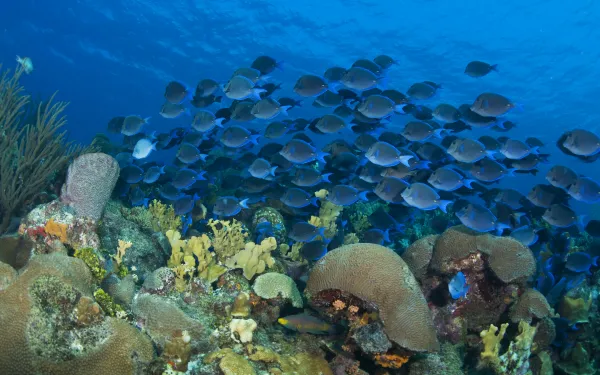
International Regulatory Best Practices for Coral Reef Protection
This Best Practices Guide provides examples of effective regulatory tools for protecting coral reefs. These tools can be adapted to the circumstances of various jurisdictions where reefs are at risk. It is not an exhaustive list of best practices, but rather a compilation of approaches that countries around the world have implemented to regulate human activities that harm coral reefs. This Guide presents basic legal and regulatory tools and practices that can be modified, improved, strengthened, and applied according to the unique circumstances and objectives of each country seeking to implement stronger protections for its coral reef resources. Download the guide Download the summary report
Read more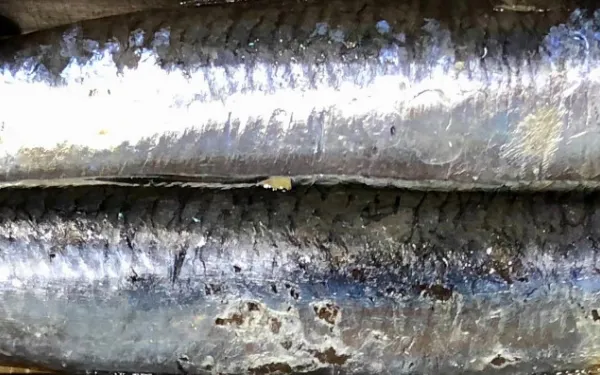
Towards Ecosystem Management of the Peruvian Anchoveta Fishery (in Spanish)
The report, created with the financial support of the Pew Charitable Trusts, contains recommendations for the legal and institutional reforms needed to manage the fishery while caring for the needs of the ecosystem as a whole. The recommendations are designed to ensure that the fishery is managed to provide enough anchoveta for both the commercial fishing industry and the rest of the marine life that depends on it. Download the report (IN SPANISH)
Read more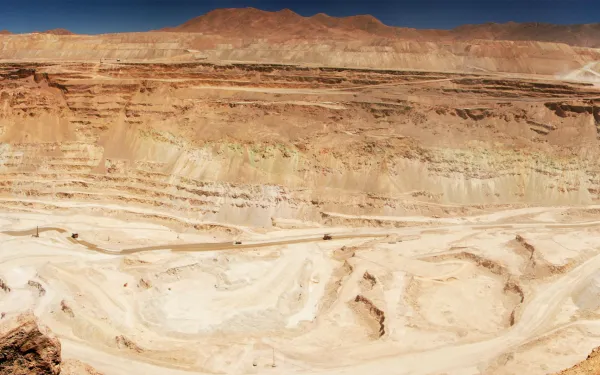
Guidelines for the Environmental Impact Assessment of Mining Projects
For many communities, water is a scare and therefore valuable resource. Access to it is complicated if rivers, lakes, or other sources are polluted or overused. Water quality often suffers when the impacts of mining projects are not adequately evaluated before the mines are authorized. AIDA’s legal expertise is helping to prevent or minimize mining’s damage on the environment and on the people who depend upon it. In collaboration with scientists and experienced technicians, we’ve prepared a guide detailing the comprehensive analysis that must be completed for any Environmental Impact Assessment of a proposed mining project. The guide will be as useful to authorities as to communities and civil society organizations. This guide recommends that, in all its sections, the Environmental Impact Assessment of a mining project contain detailed information that addresses everything from general aspects of the project to its social and environmental impacts, as well as measures to prevent or mitigate them. Read and download the report (in spanish)
Read more